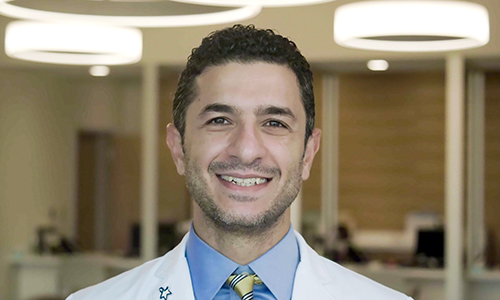Celiac disease is not uncommon – an estimated 1 in 133 Americans, at the least, has the condition – but it often is undiagnosed or confused with another medical disorder. May is Celiac Disease Awareness Month, so let’s take a look at what it is, how it affects people, and what you can do about it.
What is celiac disease?
Celiac disease is an autoimmune disorder in which the person is unable to digest and absorb gluten, a protein mainly found in wheat, rye and barley. The body responds to gluten by attacking the small intestine and causing damage to the lining, thus interfering with the absorption of nutrients from other foods.
It can occur in genetically predisposed people at childhood or later as an adult. Diagnosis is sometimes quite difficult because symptoms can vary, and the disease affects people differently.
What causes celiac disease?
Celiac disease is hereditary. People with a first-degree relative with celiac disease – such as a parent, child or sibling – have about a 10 percent risk of developing the disorder. The disease can become active in the body for the first time in response to severe stress, surgery, pregnancy, childbirth or viral infection. The intolerance to gluten also can develop later in life.
What are the symptoms?
The symptoms mimic a lot of other diseases and can range from chronic diarrhea to fatigue and vary for children and adults.
Symptoms in children include but are not limited to:
- Abdominal bloating and pain
- Chronic diarrhea
- Vomiting
- Constipation
- Pale stools
- Weight loss
- Fatigue
- Irritability and behavioral issues
- Delayed growth and puberty
- Attention Deficit Hyperactivity Disorder (ADHD)
Symptoms in adults include but are not limited to:
- Chronic diarrhea
- Fatigue
- Depression or anxiety
- Itchy skin/rash
- Bone or joint pain
- Arthritis
- Anemia
- Numbness or pain in hands and feet
- Canker sores inside the mouth
Celiac disease also can be present without any apparent symptoms, a condition known as “silent celiac disease.”
The long-term effects of untreated celiac disease can lead to the development of other autoimmune disorders, osteoporosis, infertility and miscarriage, neurological conditions and intestinal cancers.
Should I see a specialist?
If you think you may have celiac disease, visit an expert. A gastroenterologist has in-depth knowledge of the different types of celiac disease and is best equipped to address questions, diagnoses and treatments.
Patients can visit GIA without a referral. Call us today at 865-588-5121 to schedule an appointment.


